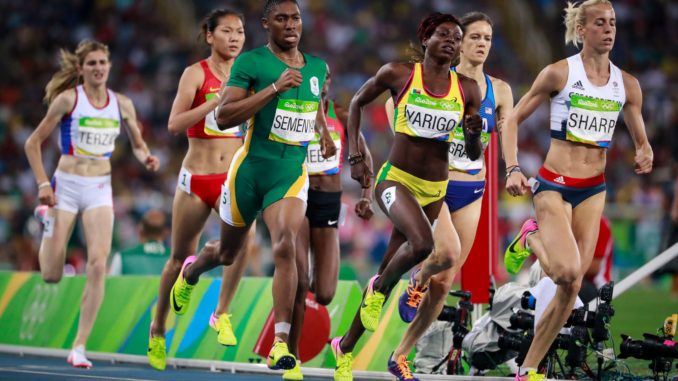
Female track athletes with naturally high levels of testosterone must decrease the hormone or face being excluded from participating at major competitions like the Olympics, the highest court in international sports has ruled.
The decision was a major blow for two-time Olympic champion Caster Semenya, who had challenged proposed limits place on female athletes with naturally elevated levels of testosterone.

BYPASS THE CENSORS
Sign up to get unfiltered news delivered straight to your inbox.
You can unsubscribe any time. By subscribing you agree to our Terms of Use
Latest Video
The ruling has affirmed the need for distinct gender lines in sports.
Nytimes.com reports: “The gender studies folks have spent the last 20 years deconstructing sex and all of a sudden they’re facing an institution with an entirely opposite story,” said Doriane Lambelet Coleman, a law professor at Duke and an elite 800-meter runner in the 1980s who served as an expert witness for the track and field’s world governing body. “We have to ask, ‘Is respecting gender identity more important or is seeing female bodies on the podium more important?’”
Semenya’s biology has been under scrutiny for a decade, ever since she burst on the scene at the 2009 world track and field championships and was subjected to sex tests following her victory. In South Africa, leaders complained of racism. The issue of whether a rare biological trait was causing an unfair advantage for Semenya and a small subset of women quickly morphed into a battle about privacy and human rights, and Semenya became its symbol. She has said little publicly about her specific biology other than stating that God made her the way she is.
In issuing its ruling the Swiss-based Court of Arbitration for Sport addressed the complicated, highly charged question involving fair play, gender identity, biology and human rights that track and field has been grappling with for decades: Since competition is divided into male and female categories, what is the most equitable way to decide who can compete in women’s events?
In a 2-to-1 decision, the court ruled that restrictions on permitted levels of naturally occurring testosterone were discriminatory but that such discrimination was a “necessary, reasonable and proportionate means” of achieving track and field’s goal of preserving the integrity of female competition.
It was a victory, though not a complete one, for track and field’s world governing body, the International Association of Athletics Federations. The federation said it was “grateful” for Wednesday’s ruling.
The I.A.A.F. had argued that athletes classified with “differences of sexual development,” also known as intersex athletes — particularly women who possess testes and natural testosterone levels in the male range — gain an unfair advantage in women’s events ranging from 400 meters to one mile because they have additional muscle mass, strength and oxygen-carrying capacity.


